Dhiyan Arini’s background
Hello! My name is Dhiyan Arini, and I am an Indonesian living in Japan. Moving abroad was not something I had actually considered until I met my husband but in 2018, with a 10-month-old daughter, we moved to Shiga, Japan (about an hour from Kyoto). Alongside being a devoted wife and mother, I work as a research assistant and senior analyst at the Value Research Center, Doshisha University.
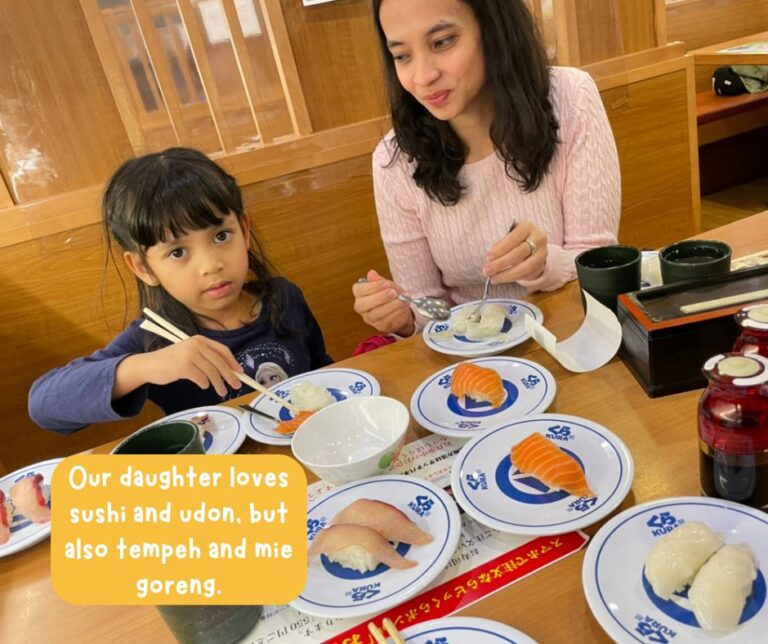
On learning Japanese
The most significant challenge I faced upon moving to Japan was the language barrier (my husband already spoke fluently when moving). Initially, I used English for my daily needs and made significant progress in Japanese since attending graduate school starting to work. But for certain things such as doctor’s appointments, I still prefer to go with my husband to make sure everything is clear.
Early on, we allowed our daughter to watch children’s programs in Japanese and the mix of languages caused a bit of confusion for her, attending school helped a lot. Our daughter is now trilingual and practices English at home, Japanese at school and Bahasa with her grandparents and whenever we visit Indonesia.
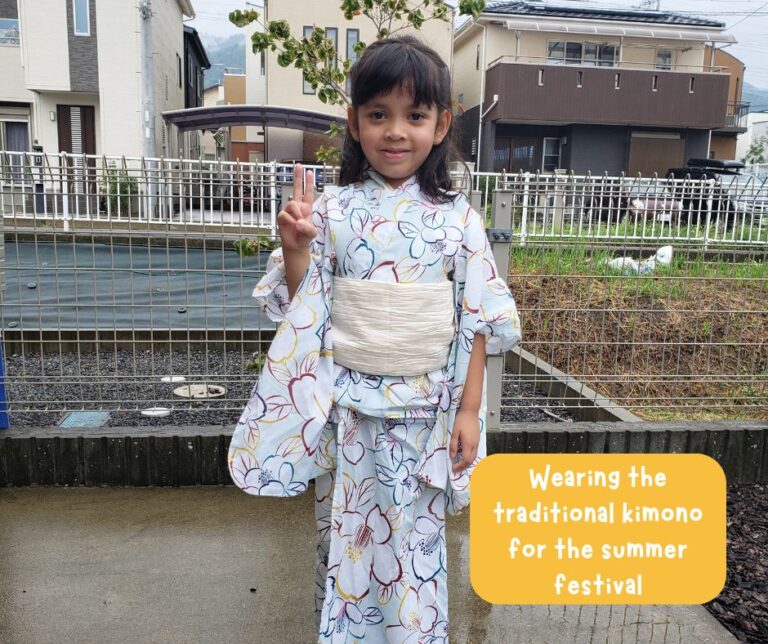
On School
Our daughter entered the public school system at age 3 and is the only foreigner in her class. Despite that, we have always been made to feel welcomed by the school and parents community. As a Muslim living in Japan, food is challenging because pork and derived products are everywhere but my daughter’s school is very attentive to that and even checks the ingredients of the school snacks to make sure she can eat them. The other parents in the class are also very supportive and provide me with all the information I need about the daily activities and school events.
Moral education is part of the formal curriculum, focusing on ethics and citizenship. Children as young as 3 are required to participate in daily school cleaning, fostering responsibility and teamwork. At lunch time, children take turns serving food.
One more thing is that I like the Japanese school system; in elementary school, there are no formal tests or exams until the fourth grade. The first three grades (first to third grade) focus on fostering a love for learning, social skills, and basic foundational knowledge without the pressure of formal testing. They do homework every day, but the homework is to read some pages in front of their parents, do basic math, and write Japanese letters. If they are doing great, they will get a “hanamaru” sign for the teacher.
Since my daughter entered elementary school, she has had a Randoseru backpack, just like all her other classmates. Randoseru are quite an investment, they are typically made from high-quality materials and can last for the entire six years of elementary school.
Everyday, our daughter walks to school with a group of children, accompanied by one parent. They must be ready at the meeting point at 7.40, and they will go at 7.45. They will not wait for the kids if some kids are late. Every two weeks, a different parent from the group volonteers to escort the kids to school.
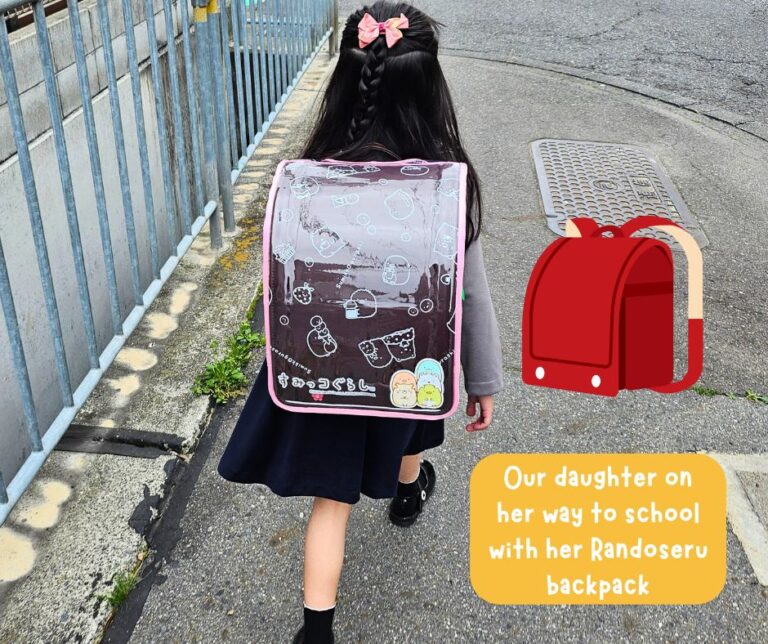
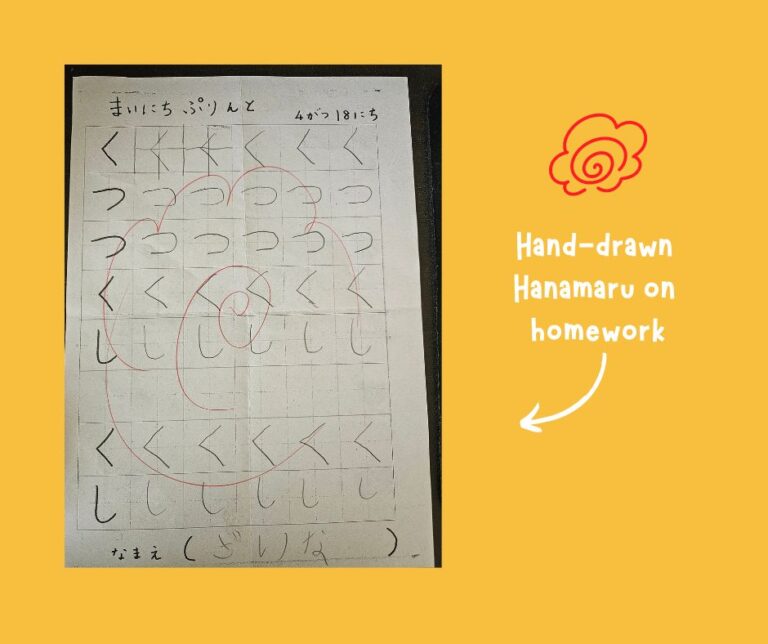
On HealthCare
The healthcare system is excellent, foreigners enjoy the same services as locals. Regular medical check-ups are available for free for children up to four years old, as well as primary vaccinations.
Interestingly, doctors here do not give fever-reducing medicine unless the fever reaches 38.5 degrees. This was a bit of a culture shock coming from Indonesia where doctors give medicine for the slightest fever.

On Indonesian culture in Japan
While we embrace Japanese culture, it’s essential for us to maintain our cultural identity, especially for our daughter. We actively participate in Indonesian food festivals and cultural events. I even performed as a Saman dancer at the “Malam Indonesia” event in Kyoto. As a dancer, I also teach my daughter about the diversity of Indonesian culture. She is very curious about Indonesian dances, such as the Bali Dance and Jaipong.
In addition to teaching our child about Islam, we participate in Taman Pendidikan Al-Quran (TPA) activities organized by the Indonesian community in Kyoto. In addition to teaching Islam, TPA itself aims to ensure that Indonesian children living in Japan do not forget their culture. The Indonesian community in Kyoto is actually quite large, the city’s culture and good university attract mostly students with some corporate employees too.
In addition to that, we naturally attend Japanese events such as Gion Matsuri and Shiga Matsuri (Matsuri are festive events that combine tradition, food, entertainment, community and offer an excellent way to experience the rich cultural tapestry of Japan). If you happen to visit Kyoto, do not miss Gion Matsuri in the summer.
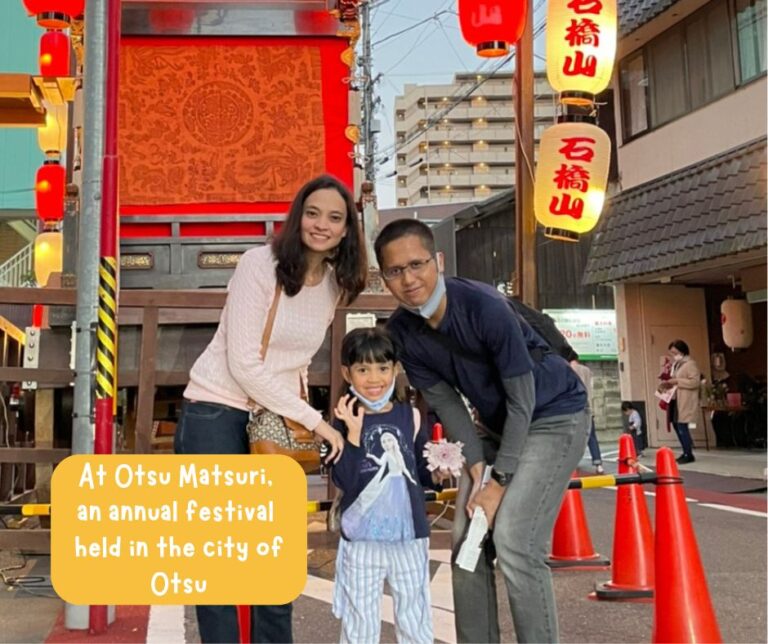
Thank you so much Dhiyan Arini for sharing your experience with us, it was truly illuminating! 🙂
